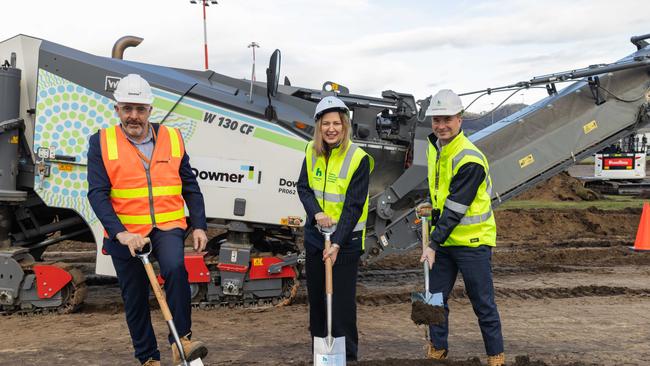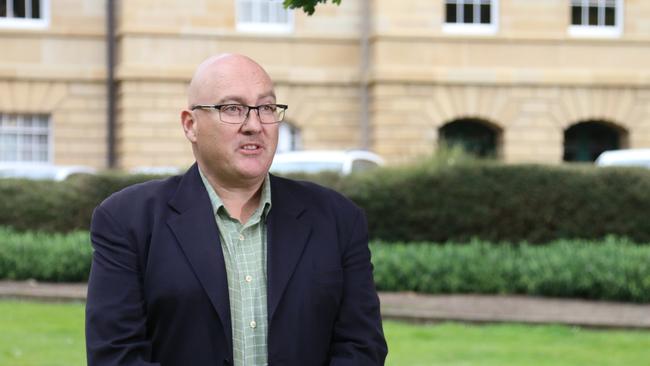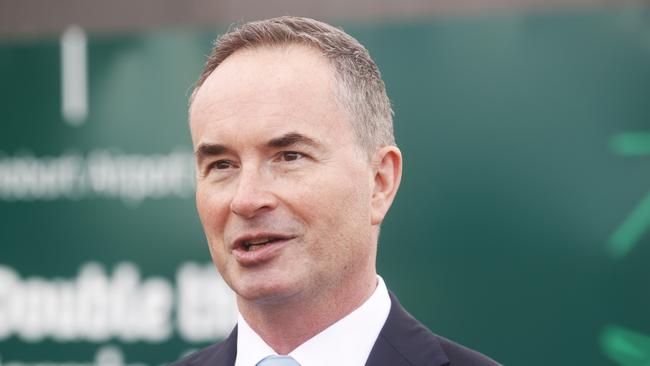Southern beaches residents make noise at Senate airport hearing in Hobart
Residents who neighbour Hobart airport told a Senate inquiry they were being “buzz bombed” daily, however a business leader believes a flight curfew isn’t the answer. TAKE OUR POLL.

Tasmania
Don't miss out on the headlines from Tasmania. Followed categories will be added to My News.
Hobart’s southern beaches communities were being “buzz bombed” by aircraft noise seven days a week, creating stress for residents and negatively impacting tourism operations in the area, a Senate inquiry in Hobart has heard.
But representatives from the Rural and Regional Affairs and Transport References Committee was also told that any moves to introduce flight curfews at Hobart Airport could jeopardise Tasmania’s vital export economy, by limiting the flow of highly perishable commodities – including premium cherries, berries, and lobster – to markets in Asia.

Members of southern beaches action groups told the public hearing of the increasing emotional toll that battles with bureaucracy over aircraft noise and pollution was taking, with Dr Andrew Terhorst giving evidence the issue was impacting residents’ everyday lives.
“We’re here today because of flight path design, because if Airservices Australia got that right there wouldn’t be the backlash that’s being generated all the way around Australia,” Dr Terhorst, a member of the Carlton River, Primrose Sands and Forcett Flight Path Opponents Group, said.
“People have got a right to walk into their home after a day’s work or being out, and actually have a quiet, safe place.
“Airservices Australia are putting people last, and you actually have to have everyone at the table when making decisions about where flight paths are over people’s homes.”
The committee heard that planes flying in and out of Hobart Airport were travelling over some homes as low as 1000 feet, creating not just noise, but physical pollution that was impacting drinking water quality.
But Tasmanian Chamber of Commerce and Industry chief executive, Michael Bailey, told the hearing that even during peak periods, Hobart Airport’s commercial traffic was less than 10 per cent of Sydney’s, and described the air hub as a vital gateway to overseas markets.
Mr Bailey said planned capacity upgrades at Tasmania’s largest airport were directly linked to the state’s future prosperity, and claimed it was “puzzling” that neighbouring residents were surprised about having aircraft noise in their daily lives.

“I think finding a happy medium on flight paths is going to be a very difficult thing to do, but the expansion of the airport is critical,” he said.
“We are an island state that desperately depends on this.
“The vast majority of tourists come in on flights, and if you look at high-value agricultural export products - plus lobsters, oysters, and abalone - they all go out under the feet of passengers.
“So Hobart Airport is a key site for us, and in the hundred years since there’s been an airport in this location, it has been a critical link for Tasmania, not just for Hobart.
“A curfew shouldn’t even be in discussion, and it’s so critical that we don’t limit access out of this airport.”
Hobart International Airport chief executive, Norris Carter, told the hearing that airports had a role to play in minimising noise, by supporting airlines’ moves to quieter models of planes.
Mr Carter said Hobart Airport was investing $200 million to double the size of its terminal, and another $130 million to strengthen the runway for wide-body aircraft, in anticipation of serving 3.5 million passengers each year by 2030.

“The airfield investment is expected to generate $122 million a year in additional economic activity and more than 1200 jobs for our state, supporting the visitor economy, seafood and berryfruit exports, and Hobart’s role as Australia’s Antarctic gateway,” Mr Carter said.
“We recognise that aircraft noise is an unavoidable consequence of aviation .. and are sympathetic to the members of our nearby communities.
“But at the same time, we must balance this with the broader need to play our part in growing our island economy for the benefit of all Tasmanians.”





